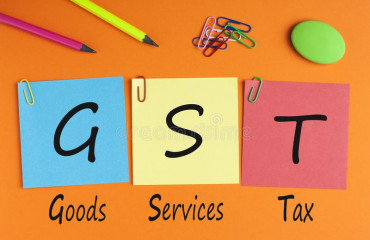
The goods and services tax (GST) on molasses has plummeted from 28% to just 5%. Molasses is a byproduct of sugar production. For listed sugar companies though, it would not move the needle. “GST cut on molasses will have little to no impact on sugar companies as there is limited third party purchases of molasses. Most of the molasses used for ethanol manufacturing is sourced internally," said Prashant Biyani, vice president – institutional equity, Elara Capital. Thus, the impact on sugar companies would vary based on a sugar manufacturer’s reliance on external purchases.
The goods and services tax (GST) on molasses has plummeted from 28% to just 5%. Molasses is a byproduct of sugar production. For listed sugar companies though, it would not move the needle. "GST cut on molasses will have little to no impact on sugar companies as there is limited third party purchases of molasses. Most of the molasses used for ethanol manufacturing is sourced internally," said Prashant Biyani, vice president – institutional equity, Elara Capital. Thus, the impact on sugar companies would vary based on a sugar manufacturer's reliance on external purchases.
Nevertheless, sugar stocks have seen a decent rally lately. Shares of Shree Renuka Sugars Ltd, Balrampur Chini Mills Ltd and Triveni Engineering & Industries Ltd have increased by around 25%, 11.4% and 39%, respectively, in the past three months.
Higher sugar prices account for a good part of the optimism here. Sugar prices in India have remained elevated amid low inventory levels and heightened demand. Elara Capital notes that domestic sugar prices have risen 5-8% to ₹39 per kg in the past three months. Outlook on prices appears upbeat. DAM Capital Advisors warn of potential sugar shortages if sugarcane crushing is delayed past 15 November, leading to expectations of sustained higher prices.
Meanwhile, worries about the country's expected output and the possibility of low or nil exports have driven global sugar prices to a multi-year high. India is one of the world's leading sugar exporters. Given this, investors should watch out for news flow on sugar exports. "It is unlikely that India shall export any sugar in the next season," said Ravi Gupta, executive director, Shree Renuka Sugars.
Over the medium term, the ethanol blending policy is anticipated to provide a significant fillip to the sugar sector. "Ethanol blending policy has used surplus sugar as a boon. This has helped sugar industry in making sustainable margin for the benefit of farmers along with reducing carbon emissions," said Gupta. The blending of ethanol with petrol has risen to 11.8% in 2022-23 from 4.2% in 2017-18. "This has led to about 4.0 mt equivalent sugar diversion towards ethanol. The government intends to achieve ethanol blending target of 20% by 2025-26, which is likely to result in about 7-8 mt sugar diversion towards ethanol," according to DAM Capital.
As a result of this policy, "More than revenue, profit contribution is rising significantly for the sugar mills," said Achal Lohade, research analyst, JM Financial Institutional Securities. Going ahead, expanding into grain-based ethanol is seen as the next growth lever for sugar firms.
